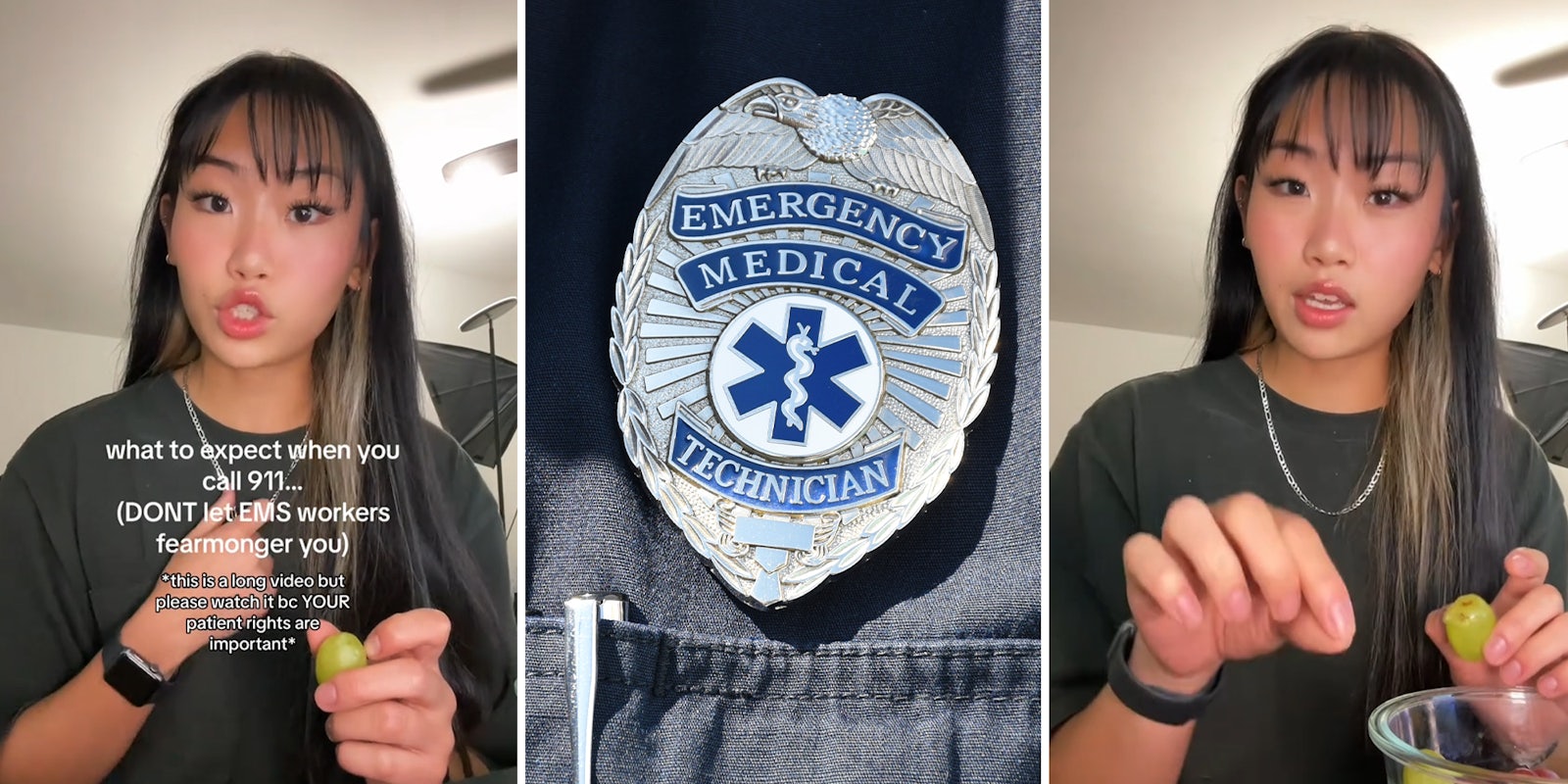In a deeply engaging and viral TikTok video, EMT worker and vlogger Sunny (@sunnysideuptv) shares an impassioned narrative, via one of her recent 911 calls, about the critical importance of understanding patient rights, particularly the right to refuse medical care or transport—known as Against Medical Advice (AMA).
The video, which has amassed over 708,000 views, is a detailed account emphasizing the ethical considerations and responsibilities of emergency medical services (EMS) and what to consider before taking an ambulance ride in an emergency.
The video starts with a powerful preface: “Again, God forbid you ever have to call 911 here. A few things I feel like you should know.” Sunny then delves into a specific aspect of emergency care that she believes many people are unaware of or misunderstand—the concept of AMA: “It states that adults with decision-making capacity can refuse transport and care.” She underscores the criteria that qualify an individual as having decision-making capacity, including being alert and oriented during a 911 event.
Sunny recounts a recent 911 call she responded to, illustrating the sequence of events and the decision-making process involved when a patient refuses care. She describes arriving at the scene with her EMT partner and a fire department crew to find a patient who, after assessment, claimed he felt fine and did not wish to go to the hospital. As per protocol, Sunny and her team began explaining the risks and consequences of refusing medical care during a 911 calls or other emergencies.
The narrative takes a turn as Sunny recounts the actions of a fellow EMS worker who, instead of respecting the patient’s decision, resorted to fearmongering. She recollects, “But one of the EMS workers on this call, right, decides to not do what I just described to you and proceeds to tell his patient and fear-monger this patient, for lack of better word, and tell his patient that he should not AMA because he is going to die.”
Sunny expresses her disappointment at the inappropriate and unethical approach taken by the other worker, highlighting the profound impact such behavior can have on patients’ perceptions and decisions.
Throughout the video, Sunny emphasizes the significance of respecting patients’ autonomy while ensuring they are fully informed about the implications of their decisions.
According to Forbes, the average ambulance ride “ranges from $940 to $1,277 depending on the level of care needed, according to a 2020 report from FAIR Health.” According to Mira Health, patients are billed “anywhere from $10 to $30 per mile.”
@sunnysideuptv lemme know ur thoughts… i hope i explained this well enough and that this is informative #ems #emt #firefighter #healthcare ♬ original sound – sunny
Sunny’s video serves as an eye-opening reminder of the crucial role of informed consent and patient rights in healthcare, specifically in Los Angeles County. By sharing her experiences and insights with 911 calls, she educates viewers on the importance of understanding and asserting their rights, especially in situations as critical as emergency medical scenarios—many of which have been studied.
The video has resonated with many, sparking discussions and raising awareness about the ethical dimensions of emergency care.
“i was in a car accident and hit my head. i was in such an overwhelmed state and the person kept YELLING at me to go to the hospital,” user Gina commented.
“my short ride to the hospital to get checked costed $985 my poor dad i tried to say no,” added user Sky Hendrix.
The Daily Dot has contacted Sunny (@sunnysideuptv) via TikTok comment for further insights.


